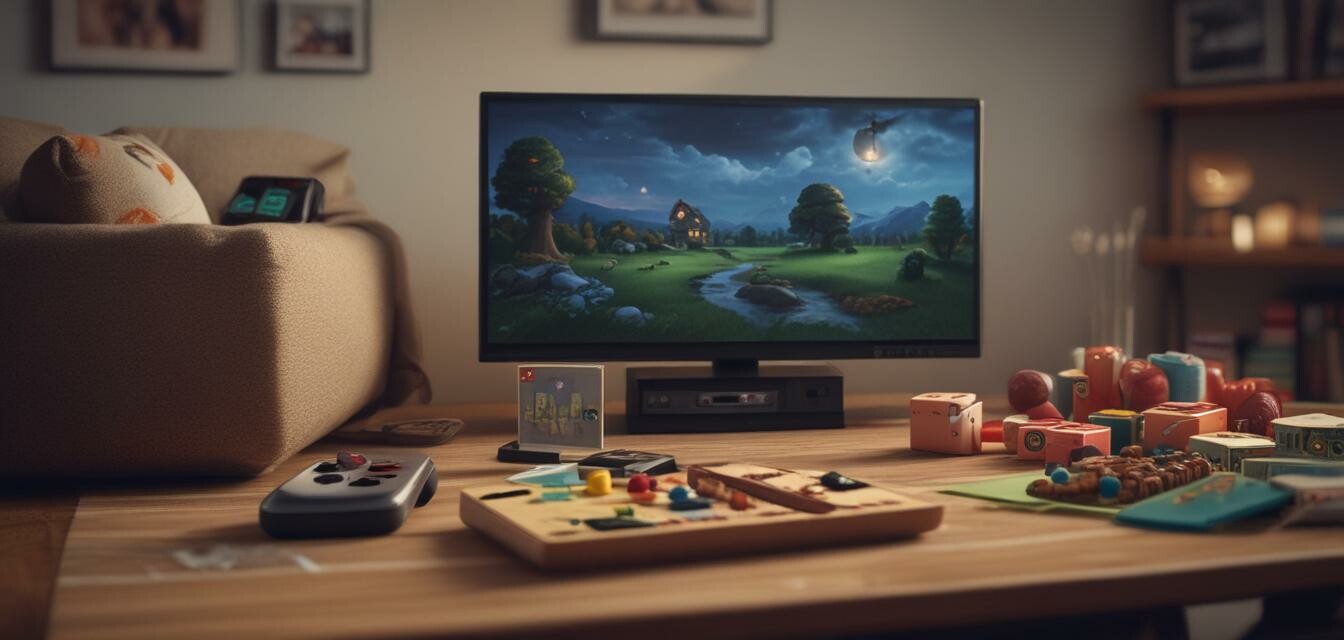
Activities to enhance family communication through gaming
- Gaming can serve as an effective medium for promoting conversations and teamwork within families.
- Age-appropriate games cater to various family members, making it easier to connect.
- Incorporating family discussions during gameplay can lead to deeper connections.
- Setting up a specific day for family gaming encourages regular interaction.
- Combining gaming with non-gaming activities can create a balanced environment for communication.
In a world where technology often distorts communication, gaming provides a valuable platform for families to connect, converse, and collaborate. Whether you're playing board games or engaging in video game adventures, these activities can bridge the gap between different generations. Here, we explore strategies that can enhance family communication through gaming.
The Importance of Family Communication
Open communication is essential for families to nurture healthy relationships. Here are some common benefits:
- Improved understanding and empathy among family members.
- Better conflict resolution skills.
- Increased trust and emotional support.
- Enhanced teamwork abilities.
Why Use Gaming as a Communication Tool?
Gaming can act as a fun and relaxed environment for family members, making it easier to express thoughts and feelings. Moreover, these shared experiences can make conversations feel less forced and more organic. Here are some ways gaming facilitates communication:
- Encourages teamwork.
- Provides opportunities for open discussions.
- Creates shared memories that can be recalled later.
- Allows for individual expression within a group setting.
Strategies to Enhance Communication Through Gaming
Here are several methods you can adopt to use gaming as a tool for improving communication:
1. Select Age-Appropriate Games
Choosing games that cater to different age groups ensures that everyone participates fully. Some games encourage discussion and strategizing, while others may be purely fun-oriented. Here’s a quick guide:
| Age Group | Game Types | Examples |
|---|---|---|
| 3-6 years | Simple interactive games | Cooperative board games |
| 7-12 years | Strategy and problem-solving games | Family-friendly video games |
| 13+ years | Complex strategy or story-driven games | Multiplayer adventures |
2. Schedule Regular Family Gaming Nights
Setting aside a dedicated time to gather as a family can foster commitment and consistency. Regular family gaming nights allow everyone to prepare and look forward to these sessions.
3. Discuss Gameplay Strategies and Outcomes
After each gaming session, allocate time to reflect on the experience. Discuss what worked, what didn't, and how the team can improve for future sessions. This reflection is essential for family growth and understanding.
4. Balance Gaming with Other Activities
While gaming is a fun way to connect, it's crucial to incorporate non-gaming activities too. Try alternating game nights with movie nights, or family outings, to keep things fresh. This balance encourages well-rounded communication.
5. Include Everyone
Encourage every family member to share their thoughts and feelings during gameplay. Everyone should have a voice, and some games naturally foster this kind of communication. Look for games that encourage participation from all players, regardless of skill level.
Tips for Beginners in Family Gaming
- Start with cooperative games that require teamwork.
- Select games with simple rules for beginners.
- Create a comfortable gaming environment free from distractions.
- Encourage younger members to teach older family members about new games.
- Listen actively to everyone's ideas and suggestions during gameplay.
Conclusion: Enhancing Communication Through Shared Experiences
In conclusion, gaming offers a creative and enjoyable means of enhancing communication within families. By selecting appropriate games and fostering an inclusive environment, families can bond, share, and grow closer together. For more family gaming tips, check out our Family Gaming Tips section.
Pros
- Promotes teamwork and collaboration.
- Encourages open discussions.
- Strengthens family bonds.
- Creates memorable experiences.
Cons
- May lead to conflicts if not managed well.
- Can be time-consuming if not scheduled.
- Depends on finding common interests in games.